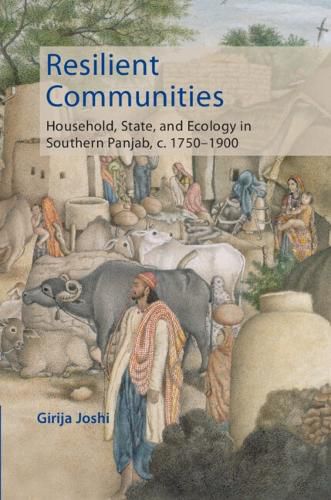Readings Newsletter
Become a Readings Member to make your shopping experience even easier.
Sign in or sign up for free!
You’re not far away from qualifying for FREE standard shipping within Australia
You’ve qualified for FREE standard shipping within Australia
The cart is loading…






This book offers a historical perspective on the relationship between community, subsistence, and governance in north-western India. Focusing on Panjab, it explores the continuities in kinship and caste practices of rural Panjabi populations from the mid-eighteenth to late nineteenth centuries. Working from the household outwards, it studies how agropastoral lineages formed, and how some of these managed during the eighteenth century to establish autonomous states or riyasats of their own. From the early nineteenth century onwards, this riyasati order was systematically dismantled by the colonial state. Nevertheless, this book suggests that colonial attempts to settle and reform rural society, by changing both its relationship to the environment and by imposing new definitions of 'community' upon it were met with uneven success. Colonial subjects in rural Panjab continued to forge bonds of kinship beyond the legal limits imposed by the state.
$9.00 standard shipping within Australia
FREE standard shipping within Australia for orders over $100.00
Express & International shipping calculated at checkout
This book offers a historical perspective on the relationship between community, subsistence, and governance in north-western India. Focusing on Panjab, it explores the continuities in kinship and caste practices of rural Panjabi populations from the mid-eighteenth to late nineteenth centuries. Working from the household outwards, it studies how agropastoral lineages formed, and how some of these managed during the eighteenth century to establish autonomous states or riyasats of their own. From the early nineteenth century onwards, this riyasati order was systematically dismantled by the colonial state. Nevertheless, this book suggests that colonial attempts to settle and reform rural society, by changing both its relationship to the environment and by imposing new definitions of 'community' upon it were met with uneven success. Colonial subjects in rural Panjab continued to forge bonds of kinship beyond the legal limits imposed by the state.